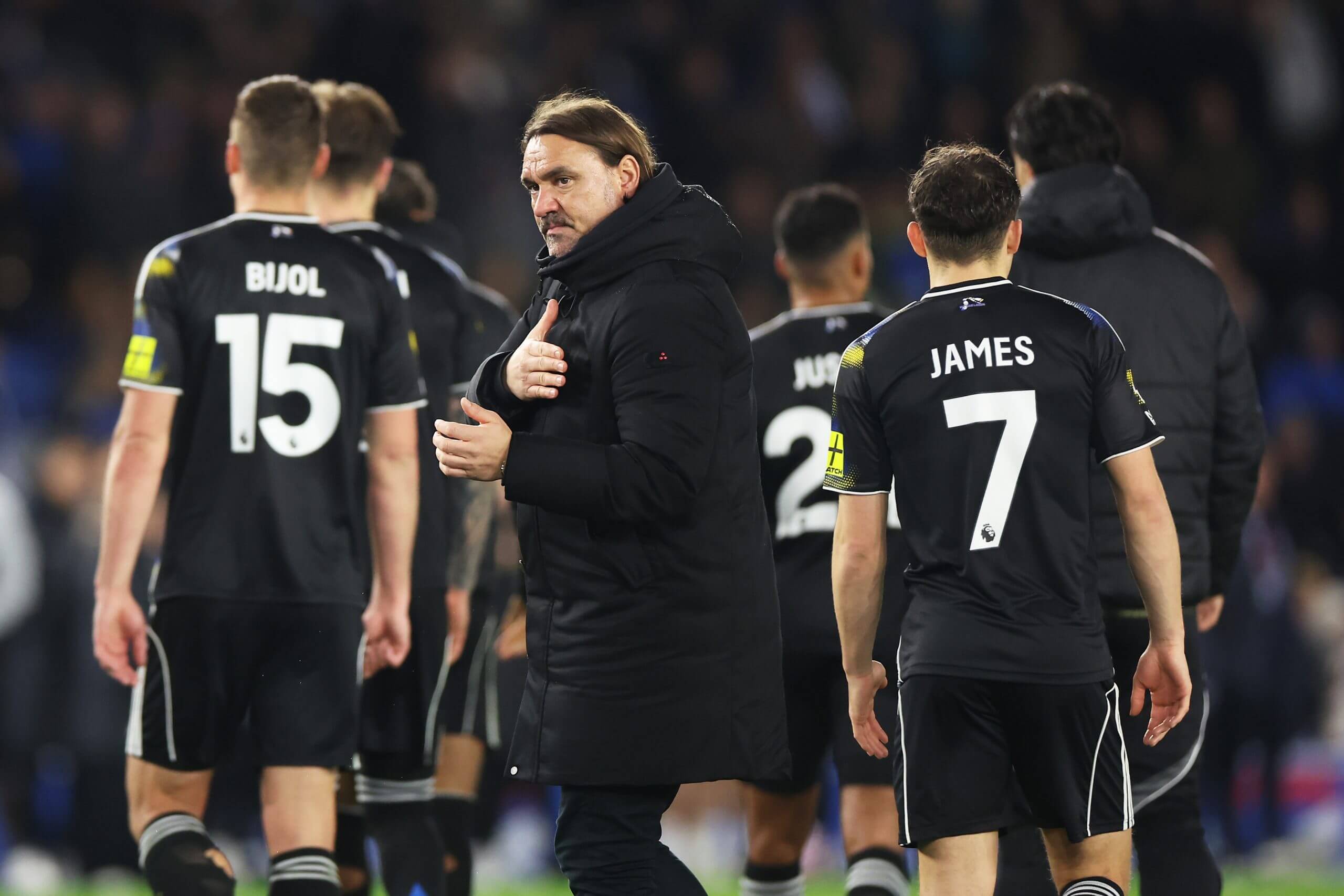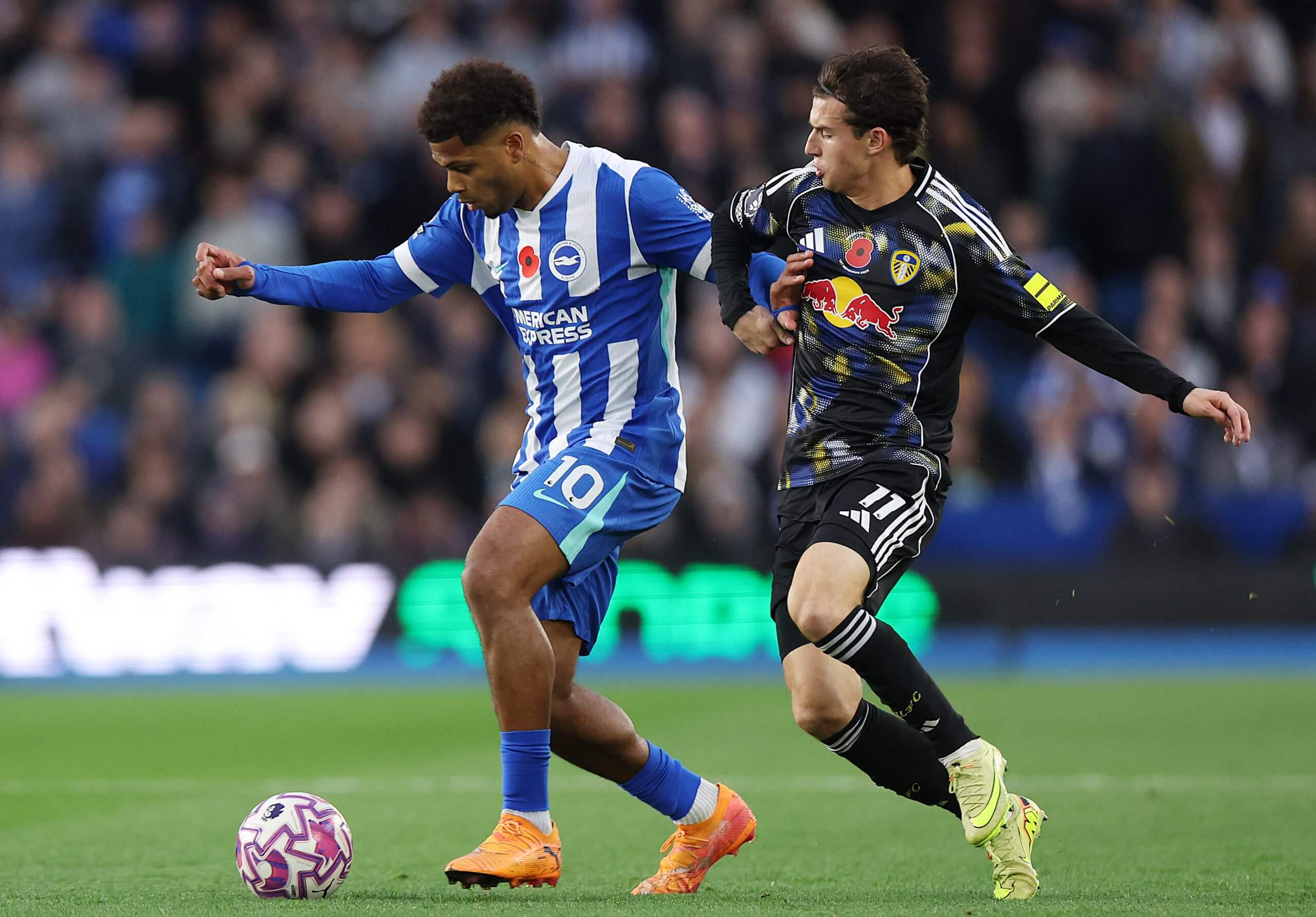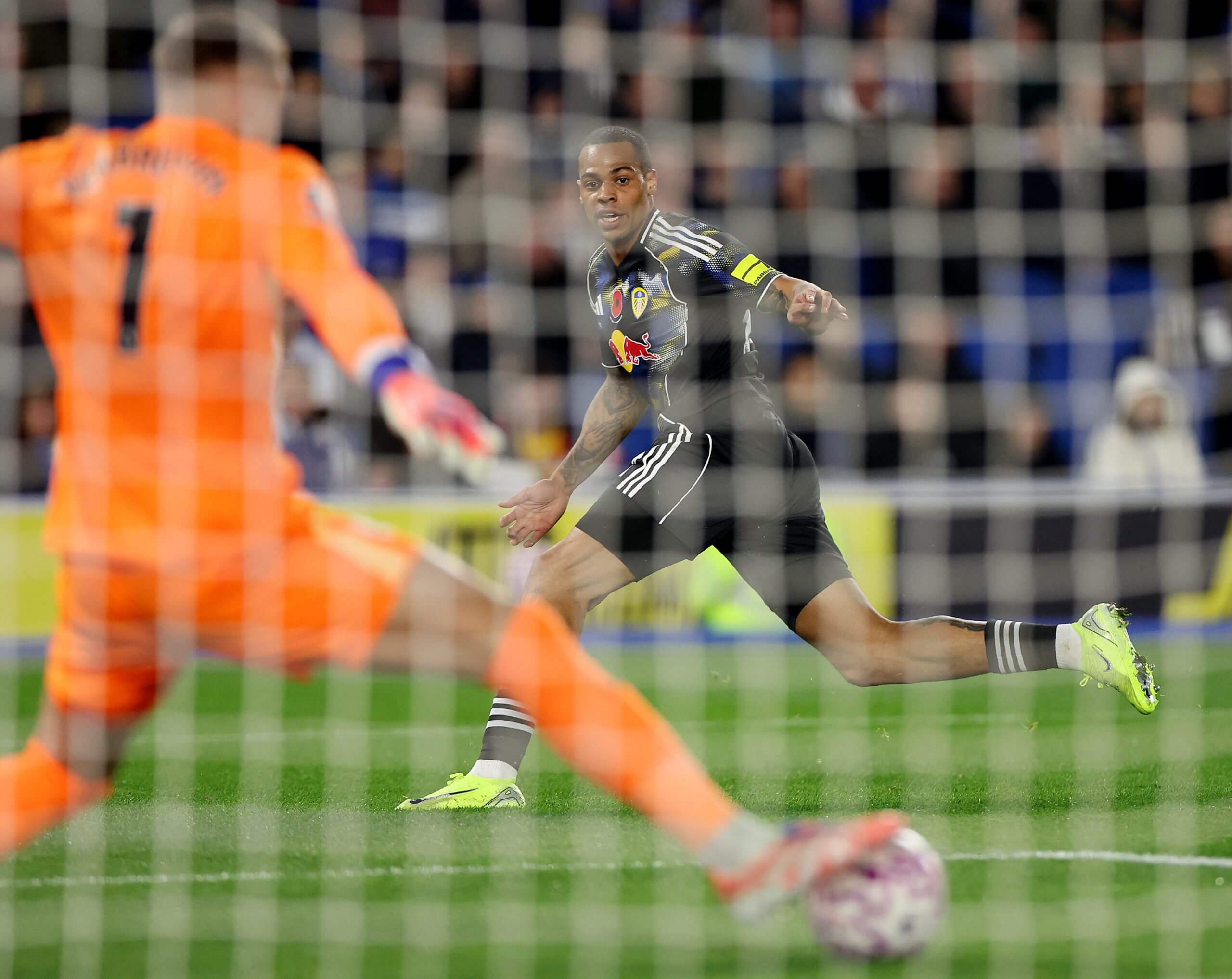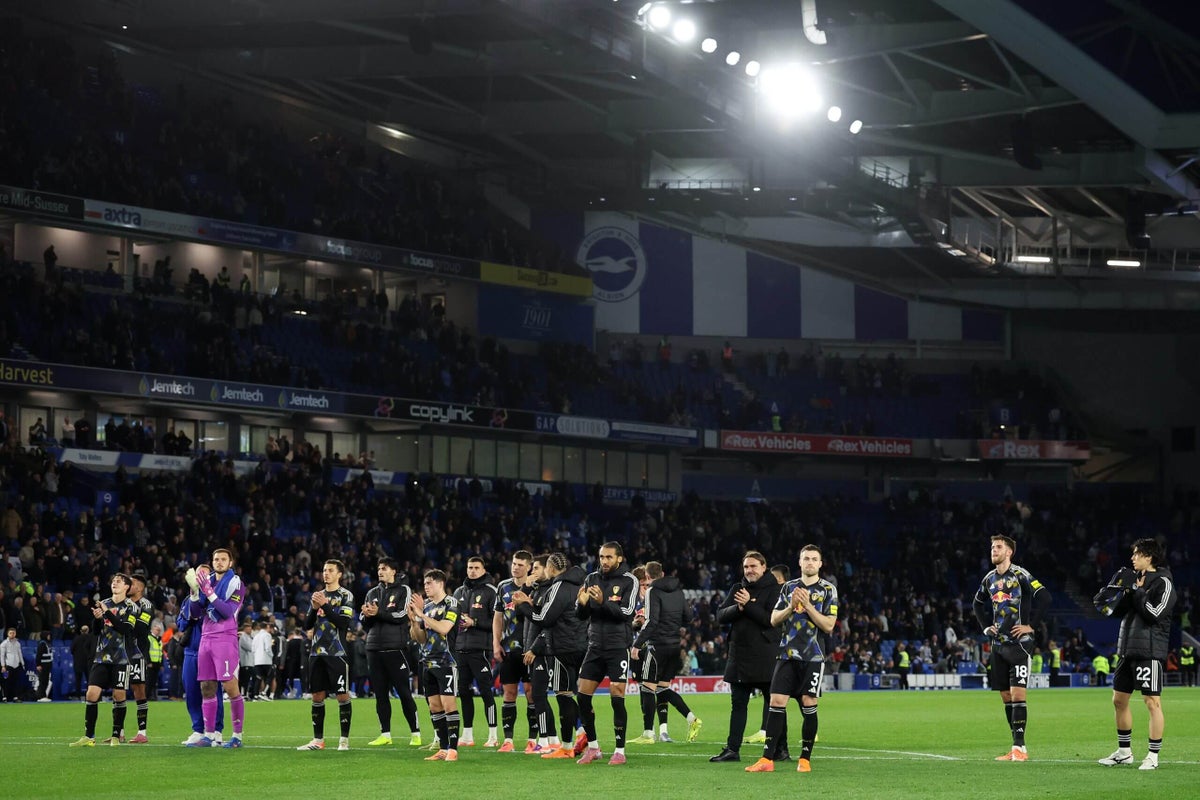Ethan Ampadu was tired, frustrated and no doubt angry as he scythed down Brighton & Hove Albion’s match-winner in the middle of the pitch. In what may be a statistic that sums up the lack of needle in this Leeds United performance, Ampadu collected the game’s only yellow card when he left Diego Gomez in a heap with a slide that had no chance of winning the ball.
It’s a yellow card we have all seen a hundred times in football. There was a tactical advantage to stopping Brighton’s counter, of course, but it was also Ampadu’s way of venting after an uncharacteristically poor showing from him in midfield.
The reaction of the teams’ two bosses said everything about their ages, contrasting experience, and the game state. Fabian Hurzeler went ballistic before Gomez had even hit the turf, bounding around fourth official Stephen Martin in anticipation of serious punishment for the Leeds captain.
Daniel Farke rarely gets involved in touchline disputes with opposition coaches, but he felt the need to step forward on this occasion, countering whatever it was Hurzeler was shouting. As the Brighton head coach snapped back, Farke waved his left hand in a calming motion.
Hurzeler later recalled arguing that it was a tackle that would have been punished with a red card in Germany.

Daniel Farke is not prone to emotional outbursts these days (Harry Murphy/Getty Images)
The Leeds manager has often talked about how he has learned to control the fiery temper he had as a younger coach when he was in charge of SV Lippstadt in his homeland. Hurzeler, 17 years his junior, may not yet have the same control.
Farke’s calmness and level-headed approach to even the poorest runs of form at the Leeds helm came to the fore in his post-match press conference, too. “We don’t have to over-analyse the game” were virtually the first words out of his mouth.
In some respects, he is absolutely correct. Leeds were second-best in every regard. Their players are not as good as Brighton’s and there’s not much more to it. Farke also knows that if he were to start digging through every morsel of the wreckage, it would not be pretty for his players.
As chairman Paraag Marathe said in his summer backing of Farke, the manager’s superpower is his calmness, his ability to take the sting out of a situation. It’s not about to make matters better for the morale in the dressing room if Farke starts pointing out Jayden Bogle’s error for the third goal, Lucas Perri’s positioning for the first, or the general disintegration of his midfield.
In other respects, this cannot be swept under the carpet. Anyone with a working knowledge of United’s recent history will know their record in East Sussex is woeful. This was a 10th consecutive visit without a win and the eighth on the bounce without a goal.
This is also Brighton’s ninth consecutive season in the Premier League. Any newly promoted visitor to the Amex, especially with a record there like United’s, is going to be a major underdog.
So, expectations were low at kick-off. A win seemed fanciful, a draw would have been a good day out, but a battling loss may have been acceptable for some sections of the fanbase. This was neither battling nor competitive.
Gabriel Gudmundsson, one of United’s best players in these opening weeks, did not even play particularly badly and still got tormented by Yankuba Minteh. Ampadu gave the ball away, allowed Georginio Rutter the freedom of Falmer, and could not protect the back line.

Georginio Rutter holds off Brenden Aaronson (Harry Murphy/Getty Images)
A combination of Ampadu and Gudmundsson’s misfiring afternoons then left Jaka Bijol badly exposed to the pace of Brighton’s incisive attacks. Next to Ampadu, Sean Longstaff, a safe bet for a seven-out-of-10 every week, was lacklustre in failing to protect the ball, provide a shooting threat from open play, or even deliver his normally accurate set pieces.
Brenden Aaronson entirely failed to build on last week’s promising display against West Ham United. The American was weak on the ball, repeatedly chose the wrong or backwards option with his passes, and never looked like beating a defender.
Dominic Calvert-Lewin has not seen the goals flowing since he arrived in the summer, but he’s been proving his worth as a focal point others can benefit from. Aside from one flick on the stroke of half-time that released Noah Okafor, there was little to remind you the No 9 was even on the pitch on Saturday.
Lewis Dunk and Jan Paul van Hecke totally nullified United’s centre-forward and he was outshone by his replacement, Lukas Nmecha, if anything. Okafor again provided more spark than anyone else in Leeds black in the final third, but he’s so often left with too much to do in limited space.

Lukas Nmecha was a rare bright spark for Leeds (Harry Murphy/Getty Images)
This was the fifth league defeat of the season for Leeds, but you could argue it’s only the second time in 10 matches they have been thoroughly outclassed. As was the case with Arsenal, Leeds barely laid a glove on Brighton, but two out of 10 ain’t bad for a newly promoted team, is it?
Fulham were gifted their win by Gudmundsson’s freakish, late own goal. Tottenham Hotspur were robust at Elland Road, but Leeds had more than enough of that match to at least draw, if not even win it themselves.
Then, most recently, there was the Burnley loss. Yes, that was a dispiriting afternoon, but most impartial observers would agree Farke’s side were competitive, if blunt at Turf Moor. They were not outclassed.
That’s what is most alarming about this, somewhat expected, defeat at Brighton. Leeds have been blitzed in only two of their 10 matches, yet the wider context of their fixture list means there is a danger this could spiral away from them quite quickly.
In short, less than three, maybe even four, points from the next two games puts United’s morale at the mercy of a punishing seven-day examination by Manchester City, Chelsea and Liverpool. Two sides in European competition, Nottingham Forest, buoyed by Sean Dyche’s arrival and a vociferous City Ground, and a rapidly improving Aston Villa, come first.
